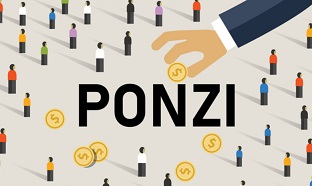Market Watch: Is the Government Running a 'Ponzi Gamble' with Debt? One Famous Economist Warns It May End Badly

Article by Jonathan Nicholson in Market Watch
In 1995, three up-and-coming economists wrote a paper saying it was possible for the government, under the right conditions, to run a deficit and keep refinancing the debt indefinitely, gambling it would never actually have to be paid off.
A quarter century and tens of trillions in federal debt later, the possibility raised by that paper is set to be put to the test as Washington ramps up the debate on post-pandemic stimulus spending. But one of the paper’s authors says policymakers shouldn’t be deceived about the downside risks.
“I think the world’s very uncertain, and in studying any policy we should also make sure always to think about how things can go wrong, not just how things go right,” Greg Mankiw, former chairman of the George W. Bush White House Council of Economic Advisers and author of a widely used economics textbook, told MarketWatch.
Unlike in 1995, when the debate was over how fast to balance the budget, or even when the Barack Obama White House sought a balanced budget excluding interest payments, the Biden administration has yet to articulate a goal for its budget policy. Instead, it has focused initially on a second big stimulus package to boost the economy and now on two multi-trillion dollar proposals for infrastructure and social spending.
The authors called it a “Ponzi gamble,” distinguishing it from a “Ponzi scheme” in that there was at least a chance of failure.
“A deficit is a gamble. It is an imprudent policy, because it imposes a significant burden on future generations in some realizations of history. But in most possible outcomes, the future effects are benign,” the economists wrote.
“Government budget deficits are more like a homeowner’s decision not to buy fire insurance. The policy is not advisable, because the adverse effects can be large.
When Mankiw co-wrote the paper, public debt was almost equal to 50% of gross domestic product. It hit 100% in 2020 and the CBO’s long-term outlook estimates it will double to 202% by 2051, making it harder to pull off an endless rollover of debt. And thus making the “The Deficit Gamble” more .....
To read this article in Market Watch in its entirety, click here.